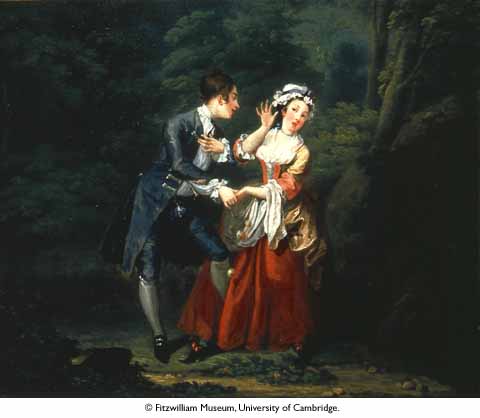About the project
This project was an attempt to investigate in a more concrete manner how the interplay between these two vocal and dramatic genres, opera and oratorio, took part in the social and political mise-en-scène that unfolded before the eyes of its intended audiences.
In this respect, opera and oratorio performance were reflections of a distinguished social mise-en-scène, at the same time as the mise-en-scène created models for social staging. In other words: The artistic expression was to be studied not only as a reflection of the social construction. The relationship between art and society constituted a dynamic and complicated interplay, where art’s expression was an active contributor, articulating images of and for the social arena.
These were the basic assumptions on which this project was based, both on the general, theoretical level and in its specification on a concrete level, in each of the four case-studies. We wished to examine in detail how these mechanisms work, hereby contributing both to the theoretical understanding of the mechanisms of interplay between aesthetics and politics, and to a fruitful explanation of how these mechanisms work in each single case subject to historical study.
Sub-projects
- Ståle Wikshåland, professor, project manager: Mozart, the musical dramatist at work
- Erling Sandmo, professor: Gustaf III: A Director on the Throne
- Jørgen Langdalen, post-doctoral research fellow: Holberg Musicus
- Eystein Sandvik, research fellow: The ideology of musical ”greatness”: Haydn’s late oratorios in a political context
Events
The Staging of Power / The Power of Staging
Politics and subjectivity in eighteenth century music and theater
International seminar, University of Oslo, june 6.-8. 2009
The more complex and agitated the public sphere appeared in early modern Europe, the more essential the stage became as a medium for the communication of ideas and values and for the negotiation of power relations. On the one hand, music and theater, by virtue of their ability as performing arts to take possession of spaces and times, scenes and events, became instruments in the exercise of political and religious power. On the other hand, by the same ability, they proved indispensable to the formation of identities and subjectivities far beyond the agendas of the powerful, and new forms of public entertainment soon began to offer a counterweight to the dominant discourses of absolutism.
These two themes—politics and subjectivity—converge in the musical and theatrical life of the eighteenth century. In this seminar we will investigate their relationship with respect to the agendas pursued as well as the events that were arranged to promote them.
Program
Saturday, June 6th
Georg Sverdrups Hus, auditorium 2
- Leo Treitler: Reflections and Questions about the Project Description.
Commentator: Ståle Wikshåland - Jessica Waldoff: Staging Rebellion in a Revolutionary Age: Fire and Water in Mozart’s Last Operas
Commentator: Live Hov - Alessandra Campana: That Subversive Movement of Comedy: Filmic Remnants of Così fan tutte
Commentator: Eystein Sandvik - Scott Burnham: Supernatural Mozart
Commentator: Leo Treitler - Ståle Wikshåland: The Truth of Fiction: Mozart’s Staging of Love in Le Nozze di Figaro and Così fan tutte
Commentator: Alessandra Campana - Erik Steinskog: Mozart avec "Kant avec Sade": Don Giovanni and (the Ethics of) Radical Evil
Commentator: Anna Cullhed
Sunday, June 7th
Sophus Bugges Hus, auditorium 3
- James Johnson: Ritual Killing and Civic Identity in Early Modern Venice
Commentator: Jørgen Langdalen - Erling Sandmo: Despots, Triangles and Bass Drums: Orientalism on the Operatic Stage in Gustav III’s Stockholm
Commentator: Marie-Christine Skuncke - Anna Cullhed, The stage of imagination: Bengt Lidner, subjectivity, and drama as text
Commentator: James Johnson - Live Hov: Opera as public entertainment in eighteenth century Rome: A special case of sovereignty
Commentator: Jessica Waldoff - Nila Parly: Doing the Diva Dying: The Performative Power of Isolde's Lovedeath
Erling E. Guldbrandsen: Staging the King: Readings of Wagner’s Tristan
Commentator: Lydia Goehr
Monday, June 8th
Sophus Bugges Hus, auditorium 3
- Lydia Goehr: Opera and Music: Discipline and Descent
Commentator: Erling Sandmo - Elaine Sisman: Solar Power: Haydn’s Tageszeiten Symphonies and the Poetics of Solar Time
Commentator: Mary Hunter - Eystein Sandvik: Nationalism, Revolutionary Wars, and the Battle over Haydn's Creation
Commentator: Elaine Sisman - Georgia Cowart: The Staging of the Audience in the Era of Louis XIV
Commentator: Nila Parly - Mary Hunter: Performing Second Violin in Beethoven's String Quartet Op. 132: Whose Subjectivity?
Commentator: Scott Burnham - Jørgen Langdalen: The Power of Melody: Keiser’s Art of Invention and Mattheson’s Melodienlehre (Croesus, Hamburg 1711 /1730)
Commentator: Georgia Cowart
Financing
The project was jointly funded by The Research Council of Norway under the program FRIHUM, and the University of Oslo.
Duration
The project lasted from 2006-2010.
